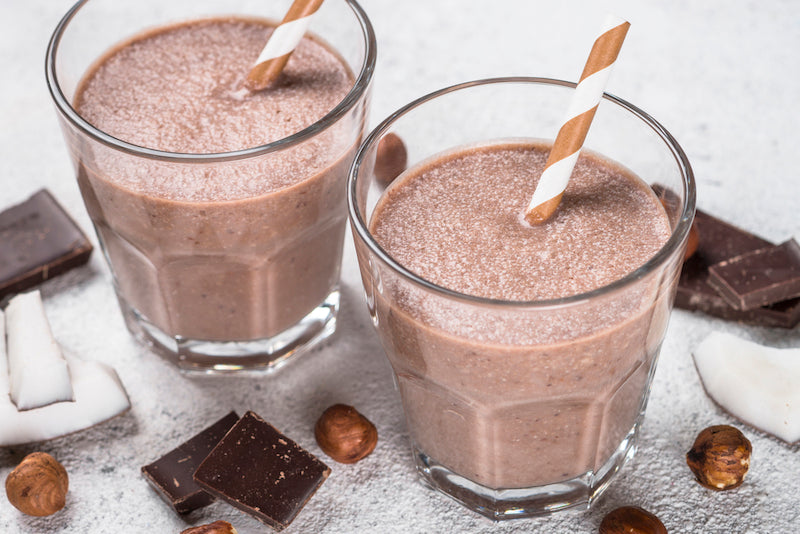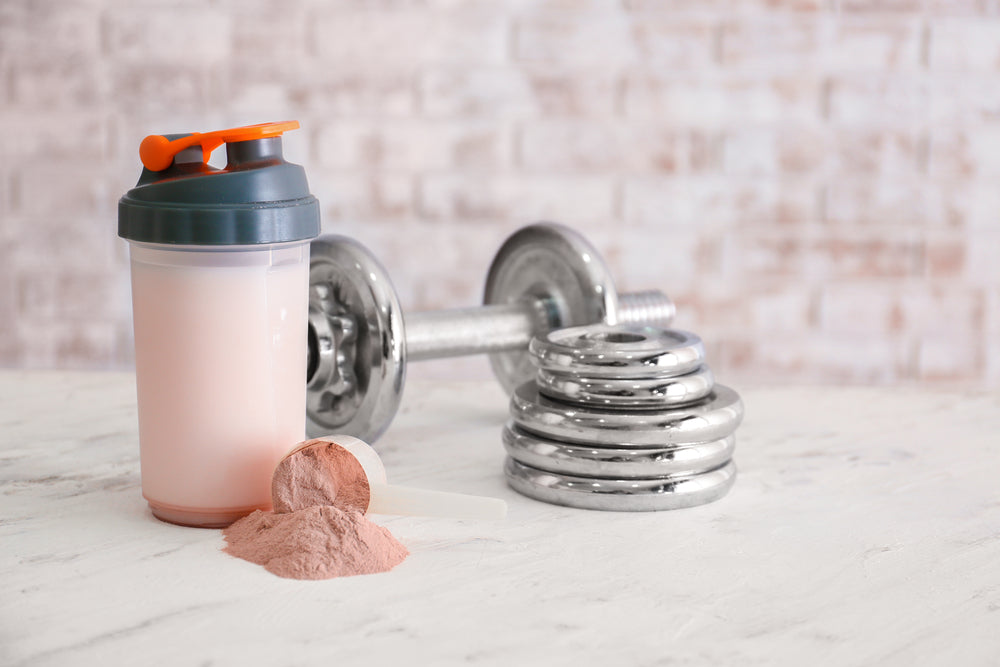If you want to maximize your results at the gym, adding whey protein into your supplement regimen could be just the boost you need.
But the world of whey protein can be confusing, we get it. What’s the difference between whey concentrate and isolate? Do you even need to use whey protein powder?
Whether you are just starting out at the gym or a lifelong athlete, adding whey protein to your daily diet can provide numerous health and performance benefits.
Don't believe it? Keep reading; we'll explain how it can help you reach your fitness and health goals.
What is Whey Protein?
Whey protein is one of the most popular nutrition supplements on the market, and for a good reason.
Whey protein is a high-quality source of protein derived from the process of making cheese and contains essential amino acids necessary for muscle growth, body composition changes, and overall health helping us build a healthy physique and improve performance(2).
Whey protein is unlike any other protein; You can absorb around 10 grams per hour. According to research, you could absorb 20 grams in two hours. Here’s a little perspective to help understand the significance of this(1).
An egg's absorption rate is around 3 grams per hour, meaning that whey protein is absorbed >3 times faster.
You might be surprised that although it’s gained its fame from supplements, whey is already in various foods you might not expect. For example, you can find some form of whey in cereals, pancake mixes, pasta mixes, spaghetti sauces, deli meats, and many more!

What are the different types of Whey?
There are two main types of whey protein on the market – concentrate and isolate whey protein.
The good news is that they both serve their purpose of helping you reach your fitness and nutrition goals, but each is packed with its own unique benefits.
Whey Protein Concentrate vs. Isolate: What’s the Difference?
Whey protein is created during the cheese-making process, it’s actually the leftover watery substance that is left behind.
But, this watery substance can be dried and turned into various protein products on the market. The manufacturing process for each type of protein can impact its nutritional value, cost, and even taste.
The watery substance we are left with has to be filtered to help remove certain substances like “casein” and then is dried to create whey protein concentrate. This concentrate contains some carbohydrates, including lactose and fat along with up to 80% protein(3).
In comparison, whey protein isolate goes through an extra step, filtering it down even more. This results in a product with greater than 90% protein content – lower lactose and fat levels.
Benefits of Whey Protein Isolate
Whey protein isolate offers several benefits, such as increased muscle growth, body composition changes, improved recovery, and more due to the amount of essential amino acids it provides.
So, if you are looking for that extra edge to help reach your fitness goals, look no further.
Powerful Tool For Muscle Growth
Lifting weights and working out is a great way to build muscle and strength. However, with the addition of whey protein isolate you can not only help build muscle but also prevent your body from breaking down muscle as well.
An extra bonus is that high-quality whey proteins also include ingredients that can fight inflammation and lower cortisol levels in the body to help further fuel gains.
It's Lactose-Free
Whey protein isolate could be the one if you are always searching for the perfect alternative due to not tolerating lactose well. Without lactose, you can chug along without worrying about an upset stomach, bloating, or nausea.
Packed with Protein, not Calories & Sugar
Whey protein isolate has a low calorie and sugar content making it a great option if you want to lose weight or maintain but are still looking to reap the full benefits of protein. For example, our whey protein isolate only has 70 calories and 15 grams of protein per serving.
The protein content will also help you feel full and satisfied - helping you avoid the cookies and donuts on the office counter.
Need an afternoon pick-me-up? Consider blending a fruity flavor with frozen vegetables, or a vanilla/chocolate flavor with banana, a shot of espresso, and peanut butter.

How Much Whey Protein per Day?
This will depend on how much protein you need per day, and this is typically a range. This range will be based on several factors like your weight, lean body mass, goals, exercise routine, and any health conditions you might have.
The general recommendation for protein needs is around 0.8 - 1 gram of protein per kilogram of body weight per day, while athletes could benefit from protein ranges of 1.4 - 2 grams of protein per kilogram (2.2 lbs)(4).
However, when we are looking to improve our physique, there’s research showing some benefits of protein ranging from 1.8-2.7 grams per kilogram(5). So, if you are doing intense exercise routines, in a calorie deficit, or working out more than once per day you could aim for around 2 grams per day to see optimal results.
For example, if you weigh 180 pounds, that’s 82 kilograms, so your protein minimum would be around 160 grams of protein to hit the target of 2 grams per kilogram of body weight.
So, if you are a busy person or someone that works out frequently, consider adding a scoop of protein after your training session. You should also consider the length of your workouts - if they are longer in duration or you are training multiple times per day - add an additional half or full scoop to sip on during your session.
Are you struggling to eat breakfast or hit your protein goal? Consider adding a scoop of whey protein during the day to give you an extra boost.
Whey Protein Concentrate vs. Isolate: Which Is Right For You?
Now that you know more about the differences between concentrate and isolate types of whey protein powders, you should feel equipped to make a decision about which one best suits your lifestyle and needs!
Remember that both forms offer similar benefits when taken regularly, so you should think about which would be best for you to start incorporating into your daily routine, based on your preferences and goals.
At the end of the day, whichever version of whey you decide on should help provide your body with the essential nutrients necessary for building lean muscle mass and improving your performance!
And don't forget to check out our grass-fed whey isolate protein powder sourced from New Zealand.







